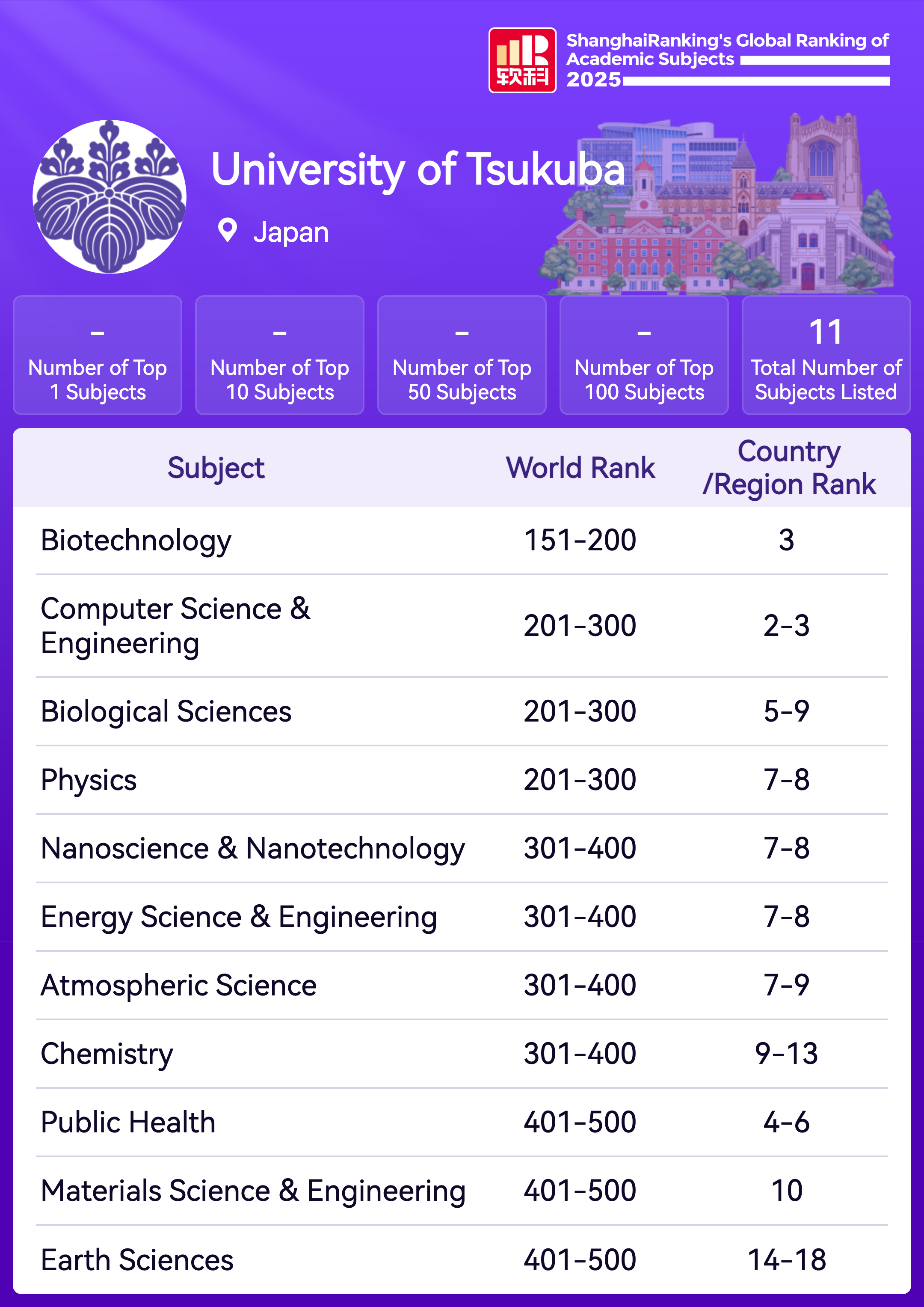 201-300
201-300 


The University of Tsukuba aims to establish free exchange and close relationships in both basic and applied sciences with educational and research organizations and academic communities in Japan and overseas. While developing these relationships, we intend to pursue education and research to cultivate men and women with creative intelligence and rich human qualities. The University of Tsukuba endeavors to contribute to the progress of science and culture. Formerly, Japanese universities tended to remain cloistered in their own narrow, specialized fields, creating polarization, stagnation in education and research and alienation from their communities. The University of Tsukuba has decided to function as a university which is open to all within and outside of Japan. Toward this end, the university has made it its goal to develop an organization better suiting the functions and administration with a new concept of education and research highly international in character, rich in diversity and flexibility and capable of dealing sensitively with the changes occurring in contemporary society.To realize this, it has vested in its staff and administrative authorities the powers necessary to carry out these responsibilities.
 201-300
201-300 
| Subject | Rank |
|---|---|
Biotechnology | 151-200 |
Physics | 201-300 |
Computer Science & Engineering | 201-300 |
Biological Sciences | 201-300 |
Chemistry | 301-400 |
Atmospheric Science | 301-400 |
Nanoscience & Nanotechnology | 301-400 |
Energy Science & Engineering | 301-400 |


| Undergraduate Programs |
|---|
Applied Sciences |
Biological Resources In Science |
Biology |
Chemistry |
Comparative Cultural Studies |
Comprehensive International Science |
Earth Science |
Engineering System Science |
Humanities |
Information and Library Science |
Information Science |
Japanese Language and Cultural Studies |
Mathematics |
Medical Sciences |
Medicine |
Nursing |
Obstacle Science |
Pedagogics |
Physics |
Psychology |
Social Engineering |
Social Studies |
The Information Media Development Studies |
| Graduate Programs |
|---|
Apex Agricultural Technology Science |
Art |
Art · Language |
Biological Sciences |
Bioresource Sciences |
Chemistry |
Coaching |
Computer Science |
Disease Control Medical Science |
Disorders and Sciences |
Earth Evolutionary Science |
Earth Science |
Economics |
Education |
Education Foundation Studies |
Electronic and Physical Engineering . |
Enterprise Science |
Environmental Science |
For Materials Engineering |
History and Anthropology |
Humanities and Social Sciences |
International and Area Studies |
International Operations |
International Public Policy |
International Technology Development of Geo-Science |
Law |
Leagal Sciences |
Library Information Media |
Life Coexist Science |
Life Systems Medicine |
Lifelong Development |
Material Development For Advanced Science |
Modern Language and Modern Culture |
Nursing Science |
Operating System Science |
Operations and Policy Sciences |
Perceptual Brain Science |
Ph.D. In Mathematics |
Philosophy, Ideology |
Physical Education |
Physical Properties, Molecular Engineering |
Physics |
Psychology |
Risk Engineering |
School Education |
Social Systems Engineering |
Social Systems Management |
Special Support Education |
Sports Health System Management |
Sports Medicine |
Sports Science |
The Apex Medical Science |
The Biological Function of Sciences |
The Biosphere Resources Science |
The Constructor Energy Engineering |
The Continuing Environmental Studies |
The Humane Care Science |
The Intelligent Functional System |
The International Japanese Studies |
The Life Industry Science |
The School Management |
The Unesco Education |
World Heritage |
World Heritage Studies |